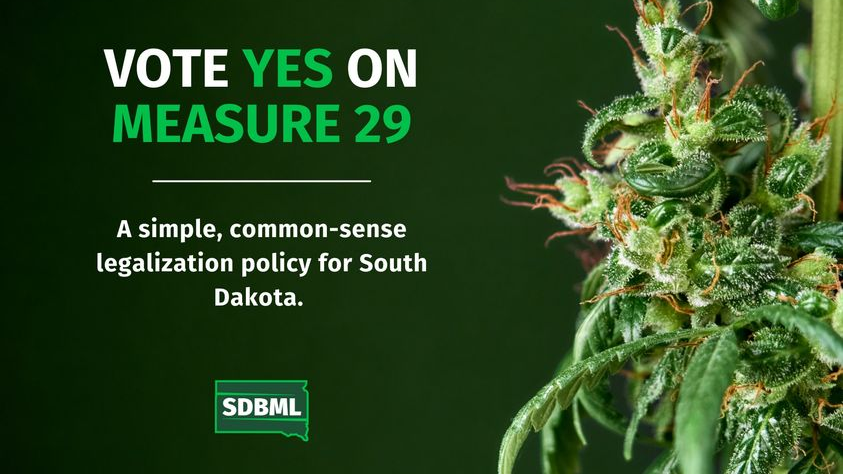As the November 5 election day draws near, the Yes on 29 campaign held a press conference today to rally support for their initiative, which would legalize recreational marijuana in South Dakota if approved by voters.

Measure 29 marks the third attempt over the past four years by the group South Dakotans for Better Marijuana Laws to secure legalization in the state. The new measure, Measure 29, seeks to legalize the possession, use, and distribution of up to one ounce of marijuana for adults aged 21 and over, while also allowing them to grow up to three plants for personal use. The measure also proposes a regulatory framework for commercial sales, including licensing and taxation provisions aimed at generating revenue for the state.
In 2020, South Dakotans for Better Marijuana Laws successfully passed Amendment A, which similarly sought to legalize recreational marijuana. However, the amendment was later overturned by the state’s Supreme Court, which ruled that it violated the state’s single-subject rule. The court found that the measure’s provisions were too broad, encompassing multiple unrelated issues within a single proposal.
In 2022, the group rallied again, placing Initiated Measure 27 on the ballot. Despite their efforts, the measure narrowly failed, falling short by just a few percentage points. Analysts attributed the failure to lower voter turnout, with 2022 not being a presidential election like in 2020.
At today’s press conference, campaign manager Brad Jurgensen spoke alongside former South Dakota Highway Patrol Trooper Alan Welsh and State Representative Kadyn Wittman (Sioux Falls).
Welsh, who served as a trooper for 28 years, initially viewed marijuana as a gateway drug but later shifted his stance, explaining that the illegal market plays a significant role in its negative perception.
“Just here to say, that’s BS, it doesn’t work like that, when I started looking and thinking for myself, it’s no, if it were a gateway drug, the gateway is keeping it on the black market,” said Welsh.
Rep. Wittman said “More than 200 individuals are currently incarcerated in South Dakota on non-violent drug charges, if medical and recreational are both legalized and we’re able to release those individuals and expunge their records, that saves us thirty-seven thousand dollars per person per year towards our DOC”.






